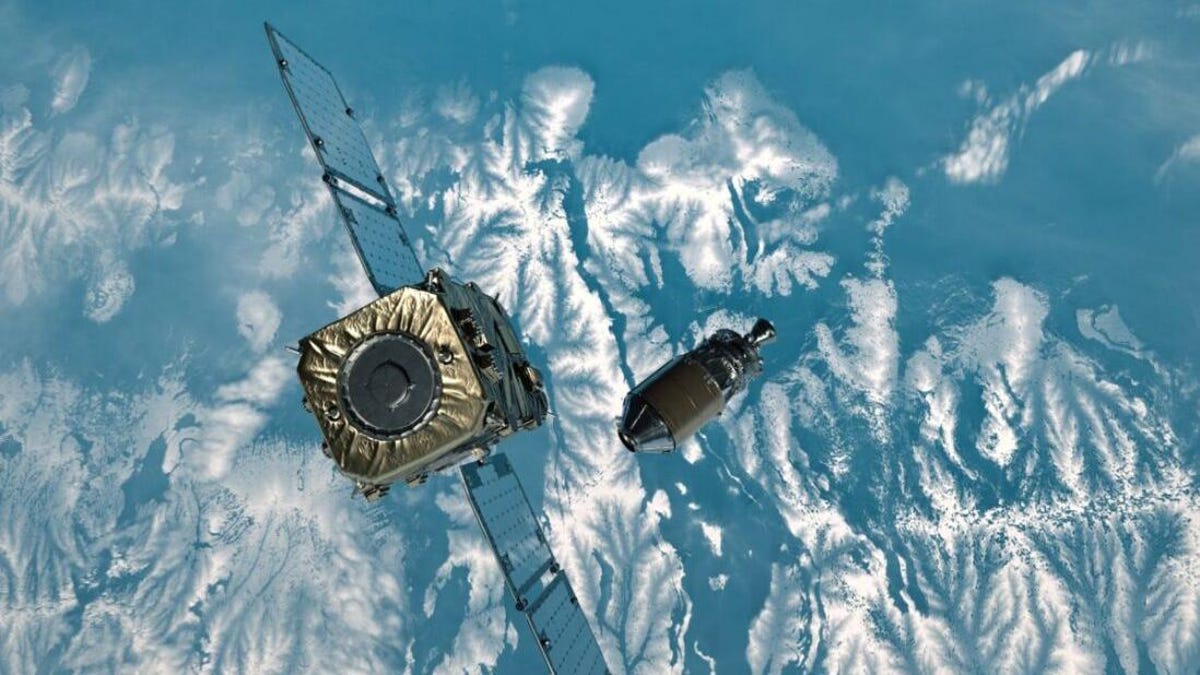Space junk hunter Astroscale looks to catch 2009 spent rocket stage

A Japanese mission to stalk, capture, and hurl space junk into the atmosphere is progressing rather nicely. The orbital garbage truck recently completed the rendezvous phase, parking next to a second stage rocket that’s been aimlessly zipping around Earth orbit since 2009.
Astroscale’s ADRAS-J mission successfully rendezvoused with a second-stage H-2A rocket, coming to within several hundred kilometers of the wayward object, the Tokyo-based company announced last week. The spacecraft is gearing up to get a closer look at the old rocket, circling its target and snapping photos of it.
More than 27,000 pieces of orbital debris are currently being tracked by the Department of Defense’s global Space Surveillance Network, with lots of smaller pieces also floating around undetected. In an effort to clean up Earth orbit, Japan’s Astroscale wants to be the first commercial deorbiting service for hire.
Advertisement
Astroscale’s satellite is designed to creep up on the defunct spacecraft and, after inspecting it, match its tumble rate in order to align and dock with it. Once it’s docked, Astroscale will lower the spacecraft’s orbit using its thrusters before releasing it on a trajectory toward Earth’s atmosphere. The decommissioned spacecraft will then burn up in Earth’s atmosphere, putting an end to its stint in orbit.
Advertisement
The company launched its Active Debris Removal by Astroscale-Japan (ADRAS-J) spacecraft in February. Since its target is not equipped with GPS, the spacecraft had to rely on limited ground-based observations to locate and rendezvous with the spent second stage.
Advertisement
Following the proximity approach phase, ADRAS-J will now attempt to execute a fly-around, capturing images and data of the rocket to assess its movement and condition.
“This brings us one step closer to further advancing our RPO capabilities and our understanding of space debris, reinforcing our commitment to the sustainable development of space,” Eijiro Atarashi, ADRAS-J Project Manager at Astroscale Japan, said in a statement.
Advertisement
A version of this article originally appeared on Gizmodo.
Original Source
